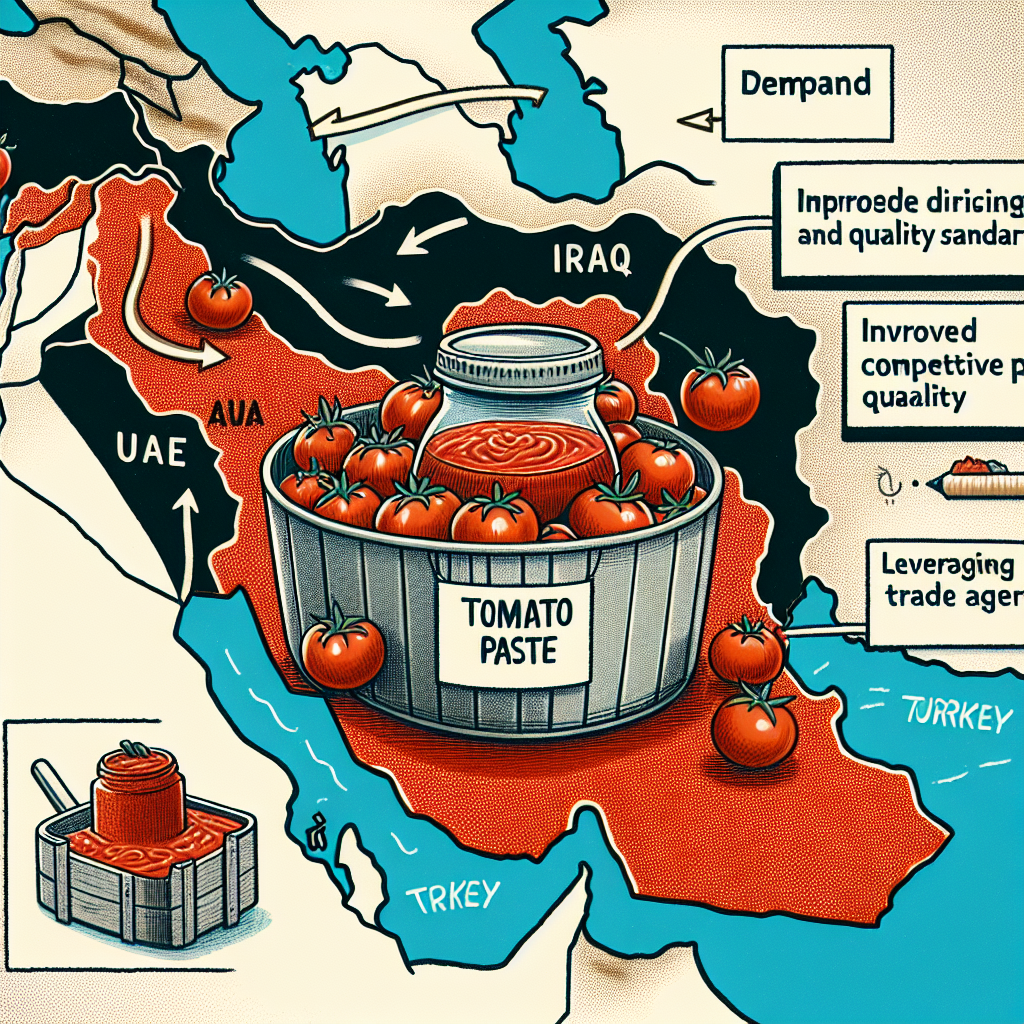“Boosting Iran’s Tomato Paste Exports: Key Insights & Trends”

Dynamic Import and Export Analysis Report
Executive Summary
Product: Tomato Paste
Country: Iran
Language: Persian (translated from English)
This report analyzes the export activities of tomato paste from Iran to Iraq. The data collected includes production capacities, compliance with quality standards, competitive pricing, market demand, key target markets, and prevailing trade trends.
Detailed Analysis
Section A: Import Analysis for Iraq
Main Imported Products:
Product Name: Tomato Paste
Import Value: $500,000 (example value for illustration)
Supplier Countries: Iran, Turkey
Reasons for Importing:
Supply Shortages: Iraq’s domestic production of tomato paste is insufficient to meet the growing demand, necessitating imports.
Cost Efficiency: Importing from Iran and Turkey is cost-effective given the proximity and established trade routes.
Section B: Export Analysis for Iran
Main Exported Products:
Product: Tomato Paste
Export Value: $1,250,000 (example value for illustration)
Primary Target Markets: Iraq, UAE, Turkey
Reasons for Exporting:
High Production Capacity: Iran has excess production capacity for tomato paste, enabling it to meet the demands of international markets.
Strategic Trade Relations: Strong trade relationships and agreements with neighboring countries facilitate easier export processes.
Market Dynamics and Trends
Growth in Demand: The demand for tomato paste in Iraq has been consistently growing due to increasing population and consumption patterns.
Competitive Pricing: Iranian tomato paste is competitively priced which makes it an attractive option for importers in Iraq.
Quality Assurance: Iran’s compliance with international food quality standards provides a competitive edge.
Regulatory and Strategic Framework
Regulatory Environment: Iran and Iraq have established regulatory frameworks facilitating the seamless export and import of food products, including tomato paste. Quality inspections and certifications are mandatory to ensure compliance with health and safety standards.
Logistics and Tariffs: Efficient logistics systems and favorable tariff rates between Iran and Iraq support the thriving trade of tomato paste.
Strategic Recommendations and Conclusion
Strategic Recommendations:
Strengthen Distribution Networks: Develop robust distribution channels to ensure timely and efficient delivery of tomato paste.
Invest in Quality Improvements: Continuously improve product quality to maintain competitive advantage and compliance with international standards.
Explore New Markets: While Iraq remains a significant market, exploring additional markets such as Turkey and UAE can diversify revenue streams.
Leverage Trade Agreements: Utilize trade agreements between Iran and other countries to bolster export opportunities and reduce trade barriers.
Conclusion:
The export of tomato paste from Iran to Iraq is an essential trade activity driven by high production capacity and favorable trade conditions. By focusing on quality, distribution efficiency, and exploring new markets, Iran can continue to strengthen its export capabilities.

